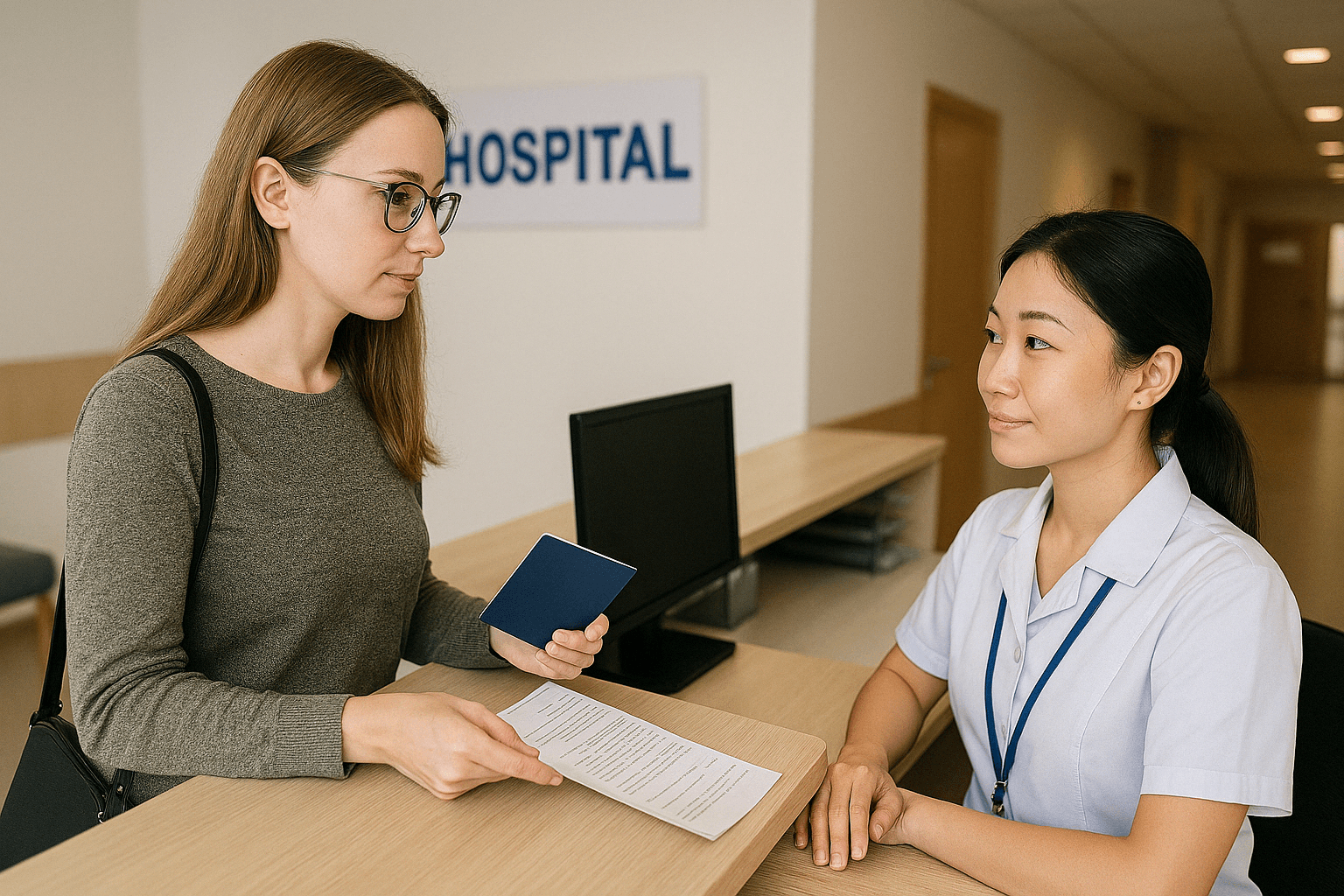Korean hospitals are known for their speed and efficiency. But for foreigners, especially first-time visitors, a smooth experience depends on being prepared. Here’s what you absolutely need to bring—and why each one matters.
1. Valid ID – Passport or Alien Registration Card (ARC)
Hospitals require proof of identity for registration.
- Short-term visitors must show their passport.
- Long-term residents (90+ days) are expected to present their ARC.
Without these, registration may be denied or delayed.
Why it matters: Your ID links your medical history, insurance, and billing. Without it, staff won’t be able to process your visit properly.
2. Korean Contact Info – Phone Number and Address
Even for walk-in patients, hospitals usually request:
- A Korean mobile number (for follow-ups, test results, and prescription notifications)
- A local address (for documentation or delivery of medication)
If you don’t have a personal number, prepare the contact of a local guardian, company, or accommodation.
Tip: Prepaid SIM cards with Korean numbers are cheap and can be purchased at airports or convenience stores.
3. Health Insurance – National or Private
If you’re enrolled in Korea’s National Health Insurance, bring proof of enrollment or your ARC (which links to your insurance).
If you’re covered under a private international policy, carry a digital or physical copy of your plan.
Without insurance, you’ll pay the full cost upfront. Some treatments can cost 2-3x more for uninsured patients.
Bonus: Helpful Add-ons
- Medical records: Especially for chronic illness or ongoing treatment
- Current medications list: Korean doctors need to know what you’re already taking
- Translation app or paper with key terms in Korean: Can bridge unexpected language gaps
Preparation is key.
By bringing the right documents and knowing what to expect, you make your Korean healthcare experience faster, smoother, and less stressful.
